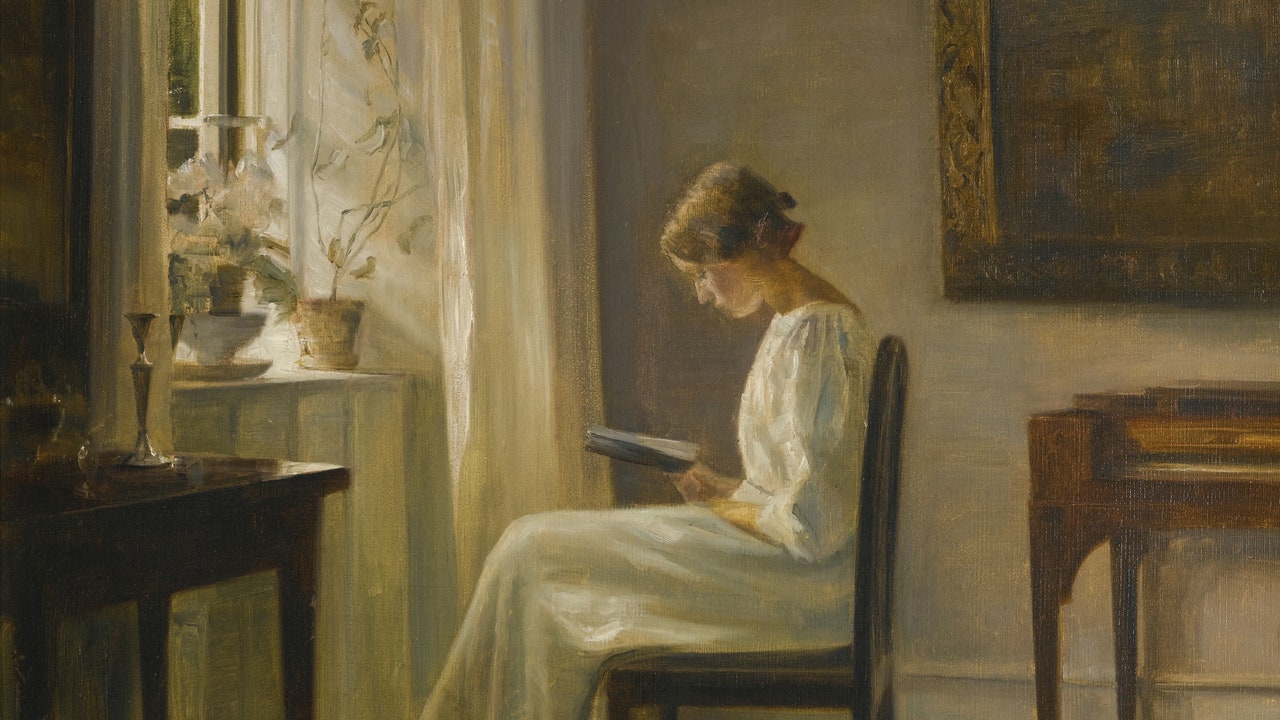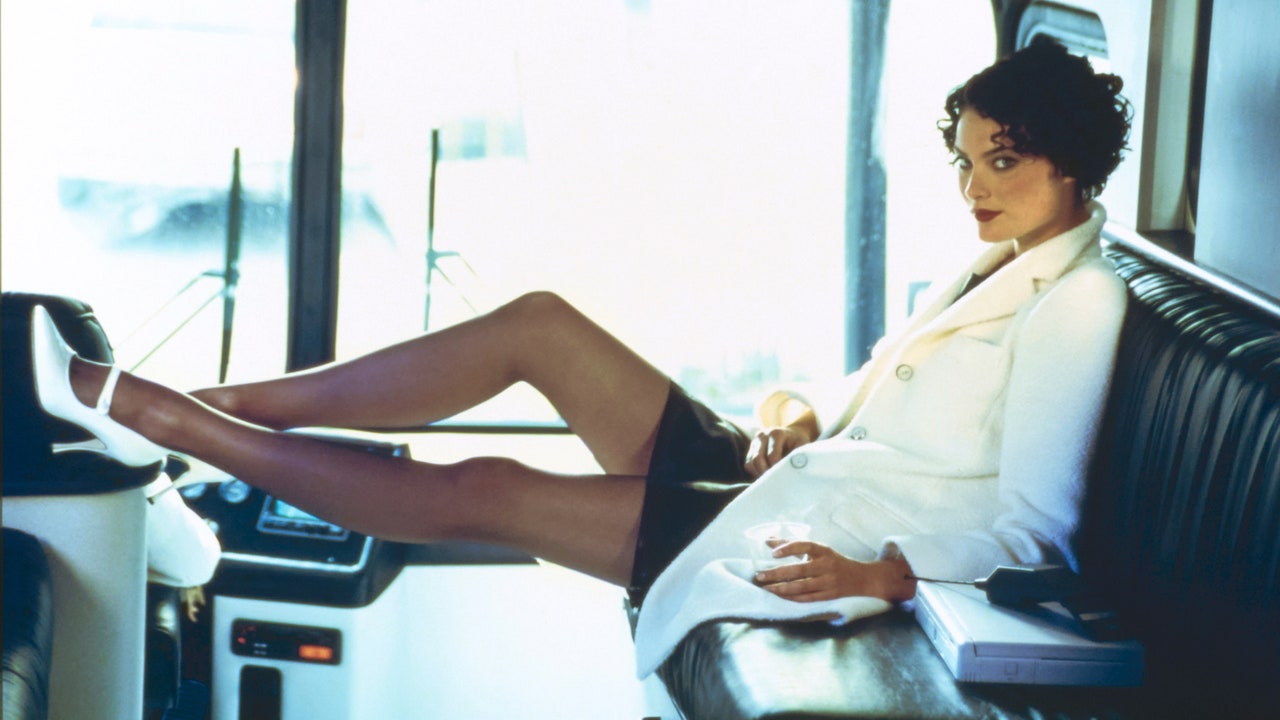There’s now a thriving business based mostly on expediting heartbreak. The lovelorn can verify right into a Heartbreak Lodge on London’s Broadway Market; do Yoga with Adriene courses to assist them “are inclined to” their “coronary heart house”; and order Guided Therapeutic Journals in each conceivable pastel shade on Etsy. Or, they may learn a ebook:
Olivia Laing has written engrossingly on the whole lot from the whiskey-rotten livers of John Cheever and Raymond Carver to the pastel abstractions of Agnes Martin, the medlar and magnolia of her personal Suffolk backyard to the midcentury craze for Wilhelm Reich’s “orgone.” A 50/50 break up of memoir and criticism, her 2016 work The Lonely Metropolis is a research of isolation and its attendant disgrace—composed after falling “headlong and too precipitously” right into a relationship whose sudden dissolution left her in emotional free fall (then lurching from sublet to sublet throughout New York Metropolis). “There have been issues that burned away at me, not solely as a personal particular person, but additionally as a citizen of our century, our pixelated age,” she writes. “What does it imply to be lonely? How will we dwell, if not intimately engaged with one other human being?” Whereas considering the works of Edward Hopper, David Wojnarowicz, and Henry Darger, she finds her reply.
At 46, after a 12 months and half spent isolating in her Manhattan studio at COVID-19’s peak, Glynnis MacNicol—single, childfree, sexually charged—decamped to Paris for a month, the place she devoted herself to the guiltless pursuit of sensual pleasure: via a one-night-stand with a 27-year-old met by way of the courting app Fruitz; by monitoring down the Parisian addresses of Lee Miller and Edith Wharton; via a gradual food plan of rosé and chèvre; and by enjoying the flâneuse alongside the Seine and within the cool, echoing rooms of the Louvre (François Boucher’s L’Odalisque would turn into the memoir’s cowl). That’s it—that’s the entire thrust of the ebook—and each web page is as moreish as a cannelé.
Forty-something poet Amy Key had been single for 22 years when she wrote Preparations in Blue, its construction loosely knowledgeable by the ten tracks that make up Joni Mitchell’s 1971 album. Devoted to “anybody who wants a love story to being alone,” the following pages discover the sunshine and shade of a life exterior the “holy standing” and “presumed construction” afforded by monogamous partnerships. This isn’t the ebook to learn when you’re searching for conciliatory platitudes: “The rhetoric that you will need to love your self earlier than you possibly can anticipate anybody else to like you possibly can really feel like a horrible burden,” she writes at one level. As a substitute, Key faucets each emotional stress level associated to singledom, and finally presents up a way of launch. “I wish to topple romantic love from its central place, hierarchy being at odds with love,” she concludes. “I can need romantic love similtaneously valuing and being fulfilled by what’s current in its absence.”
After a “non-public little earthquake” of a breakup, Shon Faye, creator of The Transgender Problem, doubles again on herself to select aside her conviction that she’s “incapable of working towards the talent of affection accurately.” “I contemplate the 2 perception methods which have most affected my concepts about love, whereas concurrently inflicting me the best ache,” she displays. “First, the idea that love is instinctive, easy and transformative… and, secondly, that happiness in love is achieved inside heteronormativity.” Over the course of Love in Exile’s eight expansive chapters, she tries to rewire her personal thoughts—and considers the dueling attraction and repulsion of “conventional heterosexuality,” a detour-filled exploration that features a paean to Lana Del Rey’s Norman Fucking Rockwell and a riposte to Germaine Greer’s The Feminine Eunuch, recollections of queer membership nights at Oxford within the aughts, and recaps of her experiences courting “alt-posh” boys with infinite philosophy levels.
Earlier than her dying at 101, Diana Athill—the formidably shrewd editor of Philip Roth, Simone de Beauvoir, V. S. Naipaul, and extra—had written no fewer than 9 memoirs. Launched in 1962, her first, As a substitute of a Letter, roams from her ’30s childhood at Norfolk’s Ditchingham Corridor to her profession within the publishing world of Swinging Sixties London—with the intention of answering the all-consuming query: As somebody who “missed the chance” to marry and have youngsters, what had she lived for? Stated quest forces her to reexamine a revelatory affair with an RAF pilot, and contemplate how their engagement’s merciless ending set her on the trail to a distinct kind of success. “From this desk, with this white tea cup, full ashtray, and small glass half stuffed with rum beside me, I see my story, atypical although it has all been and unhappy although a lot of it was, as a hit story,” she writes close to the tip of the ebook. “I’m rising 43, and I’m happier within the current and extra inquisitive about the longer term than I’ve ever been.”
Additional studying…
“As Orson Welles advised us, if we would like a cheerful ending, it depends upon the place we cease the story.” So begins Deborah Levy’s account of the years round her fiftieth birthday, when her marriage fell aside—and he or she shifted in direction of “a brand new way of life.”
Vogue’s former intercourse columnist delivers a forensic but feeling research of heartbreak via the centuries that attracts on the work of writers from Plato to bell hooks.
Jami Attenberg’s 2022 memoir, I Got here All This Approach to Meet You, grapples with the truth of dwelling a peripatetic existence—sans accomplice and youngsters—in an effort to dedicate your self totally to your artwork. The The Middlesteins creator solely bought her first actual mattress on the age of 45, touring forwards and backwards throughout America filling notebooks with concepts for greater than three many years.
Leslie Jamison entered the operating to be “the subsequent Joan Didion” when she revealed her debut essay assortment, The Empathy Exams, in 2014; a decade later, her account of the fracturing of her marriage after welcoming her daughter is its personal lesson in sensitivity and generosity.
“Marriage is a mode of manifestation,” Rachel Cusk declares in Aftermath. “It absorbs dysfunction and manifests it as order. It takes various things and turns them into one factor. It receives chaos, variety, confusion, and it turns them into kind.” Her personal divorce, then, represented a shattering—of a house, of an id, of a life—a course of that Cusk dissects with a surgeon’s coolness and precision.
A “thinly disguised novel” concerning the collapse of Nora Every little thing-is-Copy Ephron’s first marriage that comprises each an notorious French dressing recipe and a landslide of aphorisms: “Let’s face it: everyone seems to be the one individual on earth you shouldn’t become involved with.”
Annie Ernaux’s masterwork of a memoir encompasses 70 years of life and a reassessment of the very nature and texture of reminiscence… Alison Strayer’s English-language translation, revealed by way of Fitzcarraldo Editions, greater than does justice to the Nobel Laureate’s taut, impressionistic prose.


